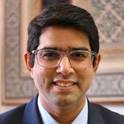The Millennium Development Goals have ended and the Sustainable Development Goals have begun, marking a shift in the global health landscape. The frame of reference has changed from a focus on 8 development priorities to an expansive set of 17 interrelated goals intended to improve the well-being of all people. In this time of change, several groups, including the Lancet Commission on Global Surgery, have brought a critical problem to the fore: 5 billion people lack access to safe, affordable surgical and anaesthesia care when needed. The magnitude of this problem and the world's new focus on strengthening health systems mandate reimagined roles for and renewed commitments from high income country actors in global surgery. To discuss the way forward, on 6 May 2015, the Commission held its North American launch event in Boston, Massachusetts. Panels of experts outlined the current state of knowledge and agreed on the roles of surgical colleges and academic medical centres; trainees and training programmes; academia; global health funders; the biomedical devices industry, and news media and advocacy organisations in building sustainable, resilient surgical systems. This paper summarises these discussions and serves as a consensus statement providing practical advice to these groups. It traces a common policy agenda between major actors and provides a roadmap for maximising benefit to surgical patients worldwide. To close the access gap by 2030, individuals and organisations must work collectively, interprofessionally and globally. High income country actors must abandon colonial narratives and work alongside low and middle income country partners to build the surgical systems of the future
Available at: http://works.bepress.com/adil_haider/227/

This work was published before the author joined Aga Khan University